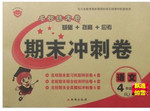题目内容
The bicycle __________ to Tom was stolen last night .
A. belonging B. belongs C. belonged D. is belonged
A

 名校练考卷期末冲刺卷系列答案
名校练考卷期末冲刺卷系列答案
| |||||||||||||||||||||||||||||||||||||||||||||||||||||||||||
“Everybody in this city wants a car, and I’m no exception. A car brings with it the freedom to travel”, said a friend of mine while reading a car magazine. I might not agree with him, but no doubt he was speaking for a rapidly growing number of middle-class Chinese. While it is true that all the waiting, walking, being part of a crowd, and sweating, are somewhat unpleasant, there are many problems which can arise when our lives rely too much on this invention.
First of all, in terms of polluting the environment, driving a car is the worst act an average person can commit. Beijing now finds itself at the top of the list of the most polluted capital cities in the world with Mexico City in the second place. Research also shows that by 2010 around 90% of total pollutants in Shanghai have come from cars. These pollutions are extremely dangerous to our health. They can damage the lungs, cause cancer, and damage the brain.
Apart from environmental problems, relying too much on cars also creates social problems such as traffic jams, road accidents, and noise pollution. The jeeps that proudly drive through the Hutongs in Beijing as if they are in a race often annoy me, and to make it worse, these drivers seldom respect cyclists.
Of course, we cannot forget the convenience that cars bring us when we need to travel far, but I often find it faster to cycle from one place to another within the city of Beijing, especially with the growing traffic jams.
Since people travel further and more frequently than before, cars will certainly be important in the future. At the same time, however, let us work hard to make sure that this invention brings us a more convenient lifestyle rather than trouble and disease. Let us make good use of cars.
【小题1】What is this passage mainly about?
| A.Environmental problems. |
| B.Traffic jams in Beijing. |
| C.Problems brought about by cars. |
| D.Benefits of using cars. |
| A.do something right or legal |
| B.do something wrong or illegal |
| C.do something good and meaningful |
| D.do something bad and meaningless |
| A.The author doesn’t want a car. |
| B.The author agrees that a car offers freedom to travel. |
| C.The author suggests that we should rely on bicycles. |
| D.The author thinks that the invention of cars leads to many problems. |
| A.The author is troubled by the way jeeps are driven in the Hutongs of Beijing. |
| B.The author thinks that Hutongs are too narrow for jeeps to drive through. |
| C.The author thinks that the jeeps are too noisy. |
| D.The author is worried that more accidents are caused by jeeps than any other cars. |
| A.Cars are only convenient for people traveling far. |
| B.We should all give up cars and ride bicycles. |
| C.Cars have brought us more convenience than troubles. |
| D.We should choose between the car and the bicycle according to the situation. |
James shook his money box again. Nothing! He carefully 36 the coins that lay on the bed. $24.52 was all that he had. The bicycle he wanted was $90! 37 on earth was he going to get the 38 of the money? He knew that his friends all had bicycles. It was 39 to hang around with people when you were the only one without wheels. He thought about what he could do. There was no 40 to ask his parents, for he knew they had no money to 41 . There was only one way to get money, and that was to 42 it. He would have to find a job. 43 who would hire him and what could he do? He decided to ask Mr Clay for advice, who usually had _44 in most things. "Well, you can start right here," said Mr Clay. "My windows need cleaning and my car needs washing." That was the 45 of James’s odd-job (零工) business. For three months he worked every day after finishing his homework. He was surprised by the 46 jobs that people found for him to do. He took dogs and babies for walks, cleared out cupboards, and mended books. He lost count of the 47 of cars he washed and windows he cleaned, but the 48 increased and he knew that he would soon have 49 for the bicycle he was dying for. The day 50 came when James counted his money and found $94.32. He 51 no time and went down to the shop to pick up the bicycle he wanted. He rode 52 home, looking forward to showing his new bicycle to his friends. It had been hard 53 for the money, but James knew that he valued his bicycle far more 54 he had bought it with his own money. He had 55 what he thought was impossible, and that was worth even more than the bicycle.
|
1. |
|
|
2. |
|
|
3. |
|
|
4. |
|
|
5. |
|
|
6. |
|
|
7. |
|
|
8. |
|
|
9. |
|
|
10. |
|
|
11. |
|
|
12. |
|
|
13. |
|
|
14. |
|
|
15. |
|
|
16. |
|
|
17. |
|
|
18. |
|
|
19. |
|
|
20. |
|